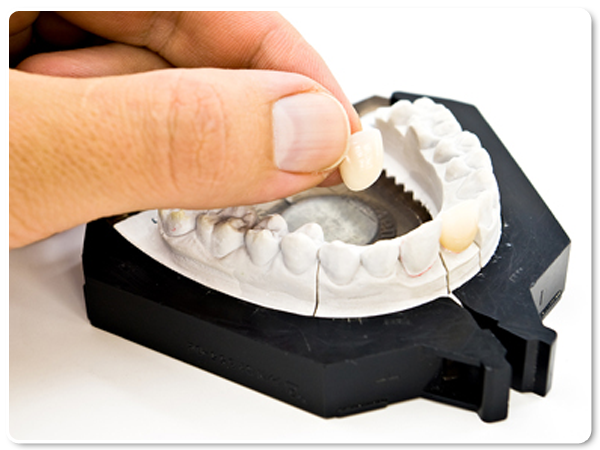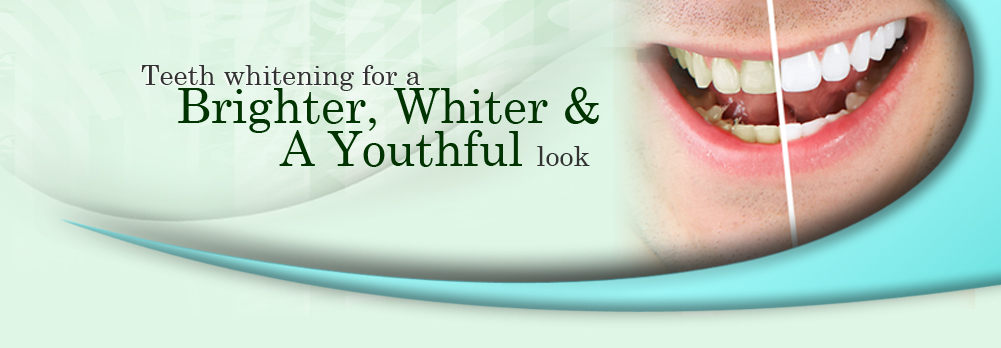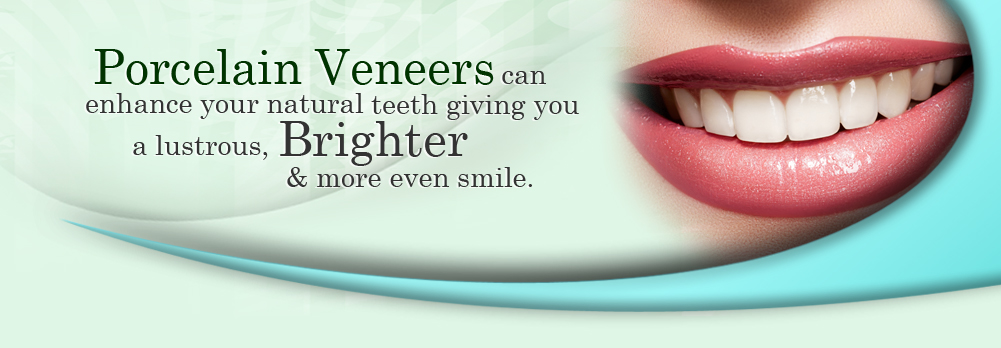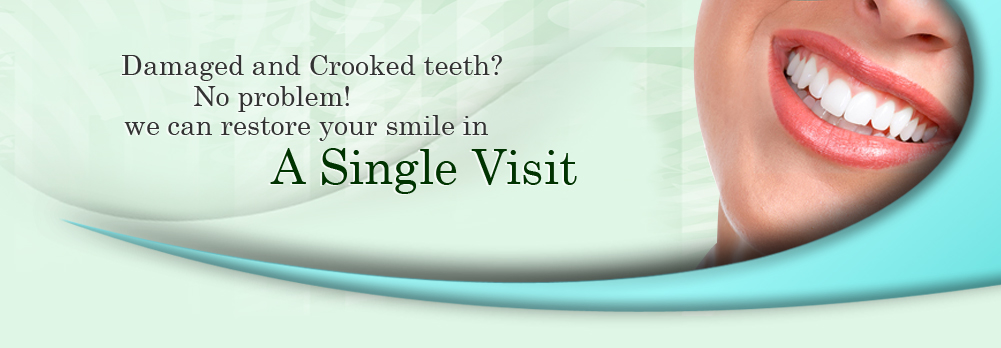Crowns (Caps)
What are crowns?

A crown is a restoration that covers, or “caps,” a tooth to restore it to its normal shape and size, strengthening and improving the appearance of a tooth. Crowns are necessary when a tooth is generally broken down and fillings won’t solve the problem. If a tooth is cracked, a crown holds the tooth together to seal the cracks so the damage doesn’t get worse. Crowns are also used to support a large filling when there isn’t enough of the tooth remaining, attach a bridge, protect weak teeth from fracturing, restore fractured teeth, or cover badly shaped or discolored teeth.
How is a crown placed?
To prepare the tooth for a crown, it is reduced so the crown can fit over it. An impression of teeth and gums is made and sent to the lab for crown fabrication. A temporary crown is fitted over the tooth until the permanent crown is made. On the next visit, the dentist removes the temporary crown and cements the permanent crown onto the tooth.
Will it look natural?
Yes. The dentist’s main goal is to create crowns that look like natural teeth. That is why dentists take an impression. To achieve a certain look, a number of factors are considered, such as the color, bite, shape, and length of your natural teeth. Any one of these factors alone can affect your appearance.
If you have a certain cosmetic look in mind for your crown, discuss it with your dentist at your initial visit. When the procedure is complete, your teeth will not only be stronger, but they may be more attractive.
Why crowns and not veneers?
Crowns require more tooth structure removal, hence, they cover more of the tooth than veneers. Crowns are stationary and are customarily indicated for teeth that have sustained significant loss of structure or to replace missing teeth. Crowns may be placed on natural teeth or dental implants.
How should I take care of my crowns?
To prevent damaging or fracturing the crowns, avoid chewing hard foods, ice, or other hard objects. You also want to avoid teeth grinding. Besides visiting your dentist and brushing twice a day, cleaning between your teeth is vital with crowns. Floss or interdental cleaners (specially shaped brushes and sticks) are important tools to remove plaque from the crown area where the gum meets the tooth. Plaque in that area can cause dental decay and gum disease.











 My husband and I love Prestonwood Dental. I already wrote a review for Dr. Daftary, and realized I should write one for her practice as well, because she and her entire team are brilliant
My husband and I love Prestonwood Dental. I already wrote a review for Dr. Daftary, and realized I should write one for her practice as well, because she and her entire team are brilliant




